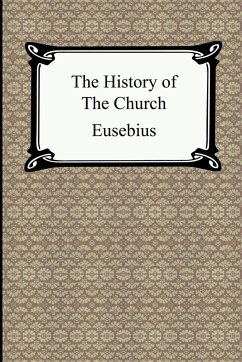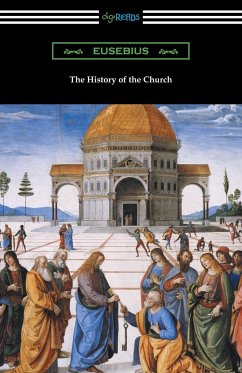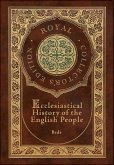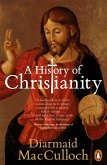"The History of the Church" or "The Church History of Eusebius" is a comprehensive ecclesiastical history of the Christian church from the time of Christ to Constantine. Christians and theology scholars will find much of interest in this volume translated by the Rev. Arthur Cushman McGiffert. "The History of the Church" can be read as an excellent companion to the Bible and other religious texts or as a complete religious historical text in and of itself.
Hinweis: Dieser Artikel kann nur an eine deutsche Lieferadresse ausgeliefert werden.
Hinweis: Dieser Artikel kann nur an eine deutsche Lieferadresse ausgeliefert werden.








